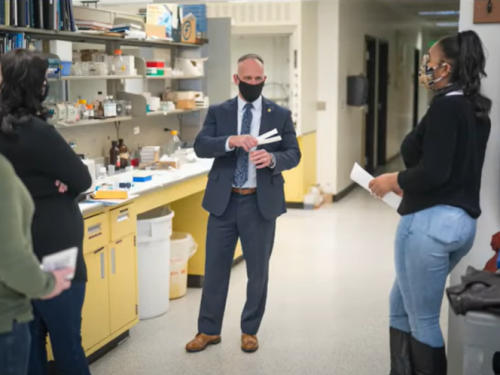Download this week’s episode on Apple Podcasts, Amazon Music, Stitcher, Spotify or via RSS feed, and watch the video version on Police1’s YouTube channel.
In the realm of criminal investigations, cold cases have always presented unique challenges and frustrations for law enforcement and affected families. Yet, the advent of advanced forensic technologies, especially DNA analysis and genealogy, has revolutionized our ability to solve cases that were once thought to be lost to time.
In this episode of the Policing Matters podcast, host Jim Dudley speaks with Lindsey Wade, a Senior Law Enforcement Specialist at RTI International, about the intricacies of cold case investigations, highlighting the critical role of emerging technologies and the unwavering dedication of investigators in bringing long-awaited justice.
With 21 years of experience as a Tacoma, Washington police officer and detective, Lindsey Wade has investigated a wide array of crimes, including sexual assaults, child abuse, missing persons and homicides. Notably, she played a pivotal role in creating the Tacoma Police Department’s Child Abduction Response Team (CART), the first CART in Washington state to be certified by the Department of Justice. Since retiring from active duty, Wade has continued her mission to solve cold cases, utilizing DNA evidence to uncover the truth behind unsolved crimes. She recently published a true crime memoir titled, “In My DNA: My Career Investigating Your Worst Nightmares,” and is the author of “DNA’s delayed justice: The fight to fill the gaps in CODIS,” published on Police1.
About our sponsor
This episode of the Policing Matters podcast is sponsored by OfficerStore. Learn more about getting the gear you need at prices you can afford by visiting OfficerStore.com.
Memorable quotes
- “The camaraderie of just being able to start a case and go from beginning to end, I do miss those things.”
- “We knew that they were going to be solved eventually with DNA. We just needed a match.”
- “It’s another tool in the toolbox. And, you know, it’s not something that you want to stake your whole case on.”
- “Twenty-five days after I retired, a DNA match comes in ... and still alive. So, he was arrested.”
Key takeaways
- The evolution of DNA in policing: Advancements in DNA technology have significantly impacted the ability to solve cold cases, with genealogy playing a crucial role in recent breakthroughs.
- Challenges and rewards of cold case investigations: Working on cold cases requires patience and persistence, with investigators often balancing them alongside active cases due to limited resources.
- The importance of public engagement: Innovative approaches, such as using anniversaries of unsolved cases to reignite public interest and gather new tips, have proven effective in generating leads.
- Legislative changes and societal impacts: The resolution of significant cases has led to changes in laws, highlighting the broader societal impact of solving cold cases beyond individual justice.
- The future of forensic science: Rapid DNA technology and other advancements promise to further revolutionize cold case investigations, making it possible to solve cases more quickly and efficiently.
Rate and review the Policing Matters podcast
Enjoying the show? Please take a moment to rate and review us on Apple Podcasts. Contact the Policing Matters team at policingmatters@police1.com to share ideas, suggestions and feedback.








